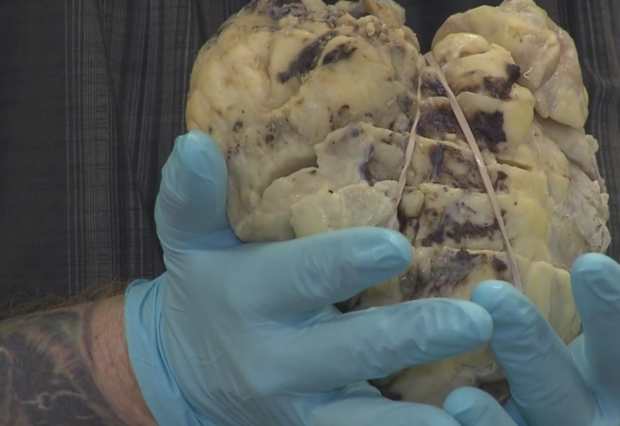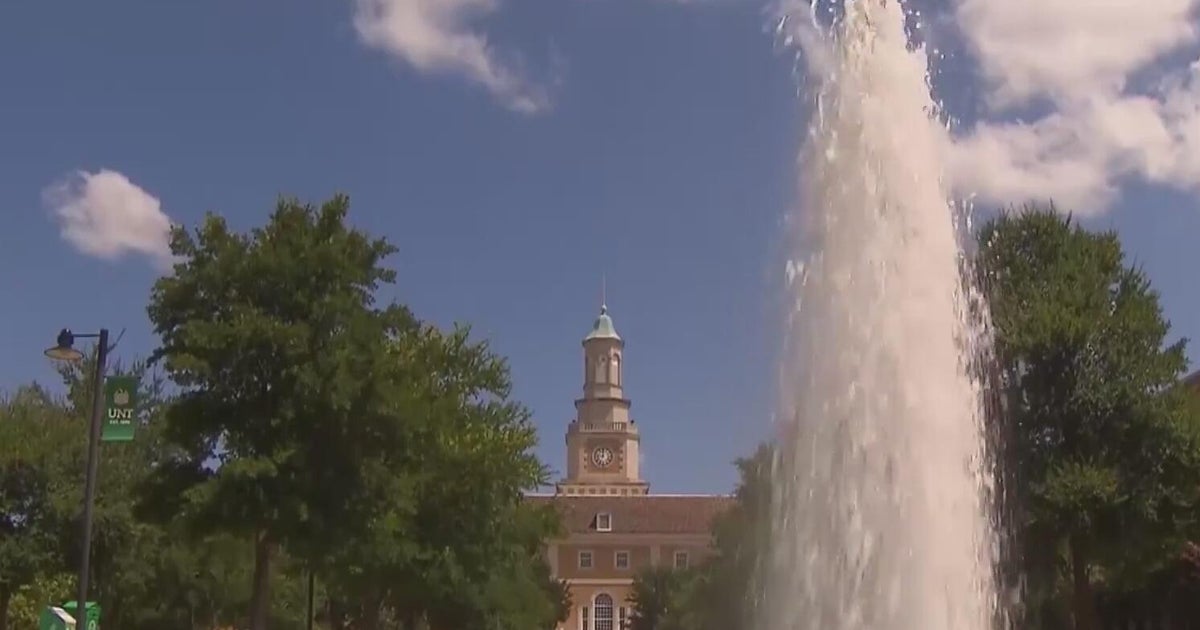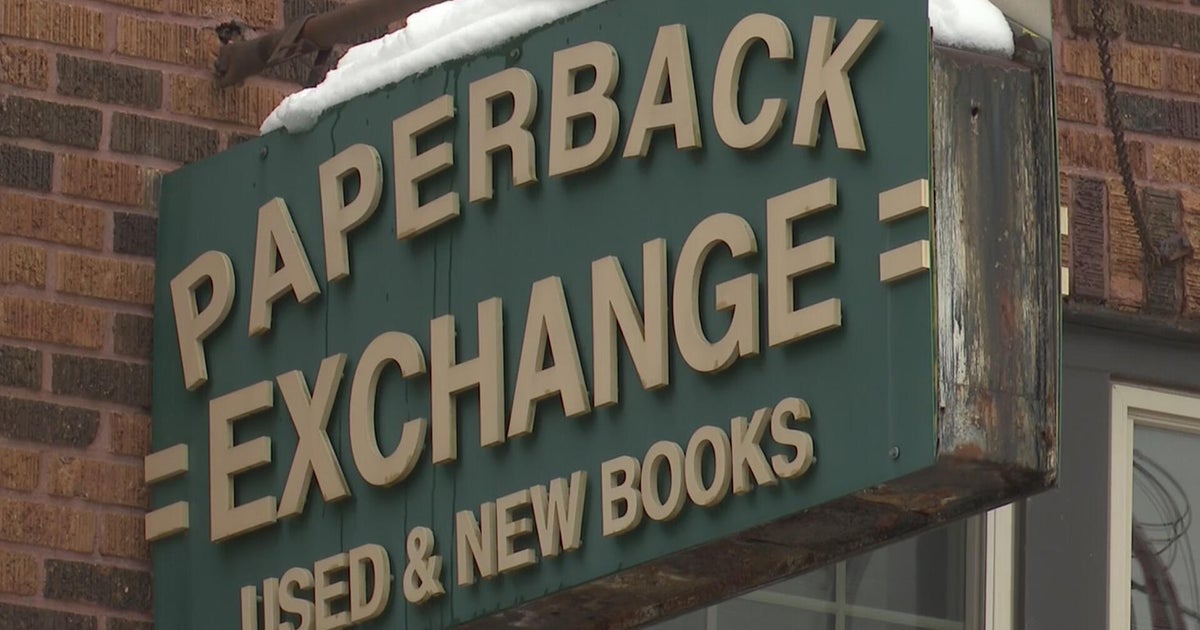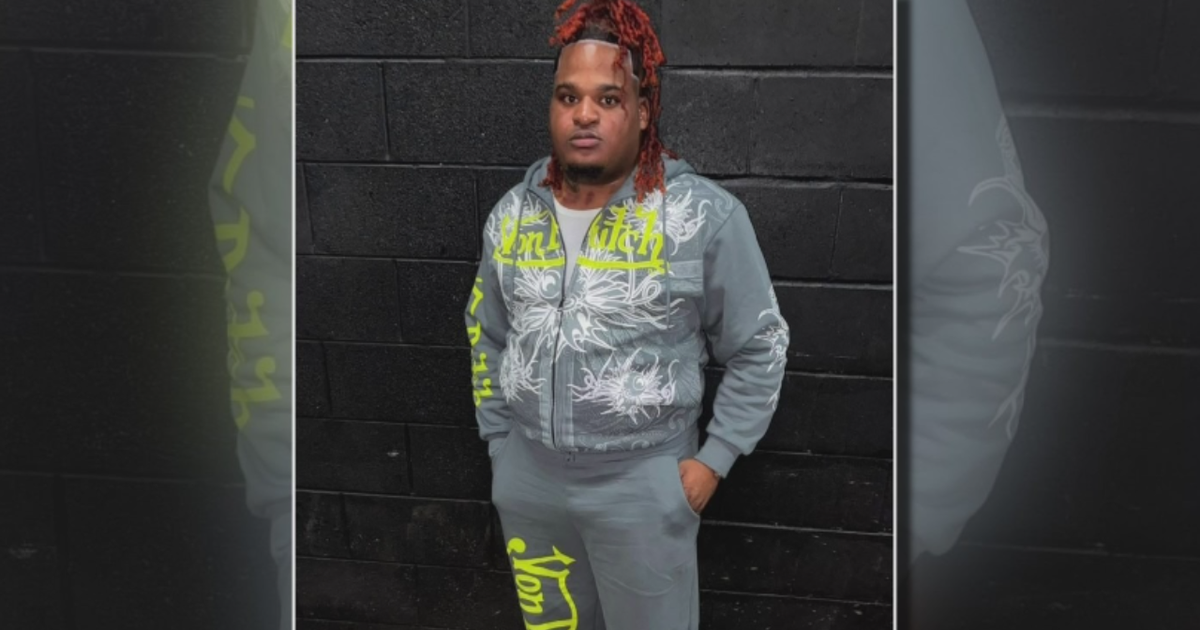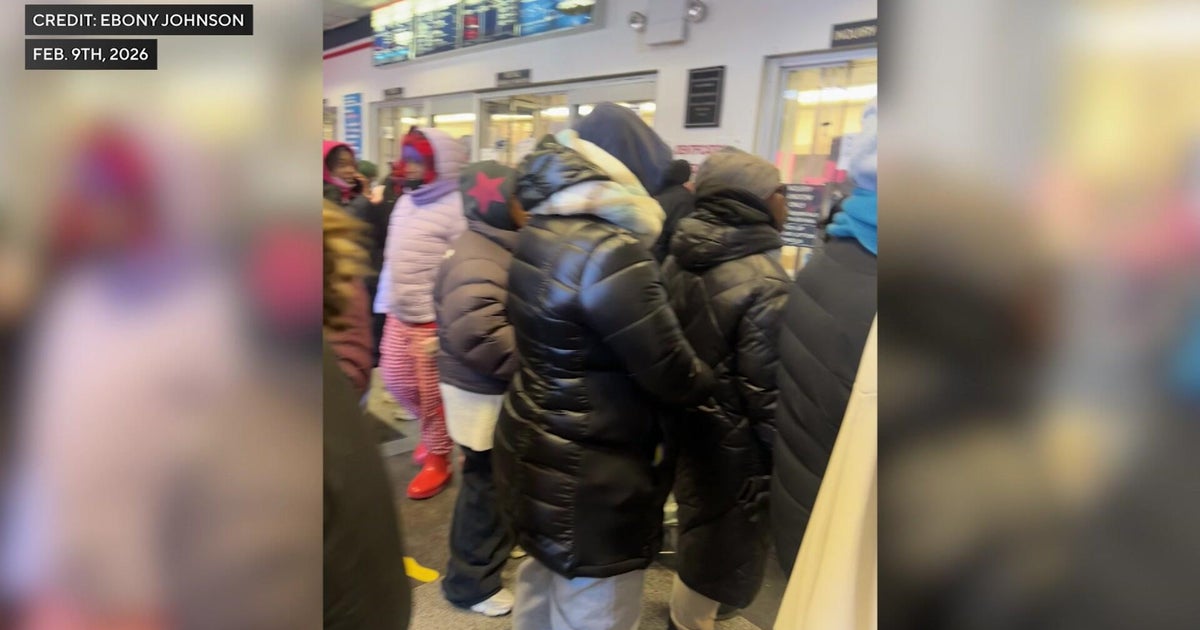North Texas Researchers Deliver Game-Changing Options On Organ Donation
DALLAS (CBSDFW.COM) - Joseph Haskins was born with a broken heart and on Thursday he returned to Baylor Scott & White to see and hold it. For real.
"It's huge!" he exclaimed as cardiac pathologist Dr. Bill Roberts unwrapped the preserved, but badly damaged heart that doctors replaced in a transplant operation in September.
It was a day decades in the making.
"Every day I got stronger and stronger," says Haskins. "I haven't felt this good since I was in my late 20s or so."
Haskins has Ehlers-Danlos syndrome, a genetic condition that destroys he connective tissues in his heart. He had a heart murmur at just 9 years old.
After a valve replacement years later, his condition continued to deteriorate. Prior to his transplant he says he became winded just getting dressed, tying his shoes or walking across the room.
"As I started getting worse, there were times I would sleep all day, because that was all I had the energy to do."
He needed a heart transplant, but because of his tricky genetic history, three transplant centers told him 'no'.
"It took us a couple of days to pick ourselves up off the floor after that," says Kim, his wife of more than three decades. "It was real devastating."
Then the family found Baylor Scott & White.
Not only were doctors not deterred by the genetic condition, they were working on a clinical trial that could perhaps give him a new heart sooner, with the understanding that it could also give him Hepatitis C, which it did.
"So the idea is, would someone like the first good heart, regardless of whether it has Hepatitis C or not, and then can can we go ahead and cure the Hepatitis C," says Dr. Robert Gottlieb, who wrote what is being called the Trojan-C trial. "Take the gift, separate out the trojan that's loaded into the gift and be able to reclaim that organ and be able to help the patient live longer and better."
Which it did. Haskins says he has no regrets.
"When you get to the state I was in, even if couldn't have gotten rid of the Hepatitis C, I would have taken it because it would have given me more time than what I had left with my heart. I couldn't lose even if I couldn't get rid of the Hepatitis."
Now, Haskins is virus free with a brand new heart, and new hope for more good days ahead.
"I can breathe. I can do things now I haven't been able to do in years. I am blessed that I got here," says Haskins, his eyes suddenly shining with unshed tears. "The institution saved my life, that's all I can say."
For more details on the research, click here.
